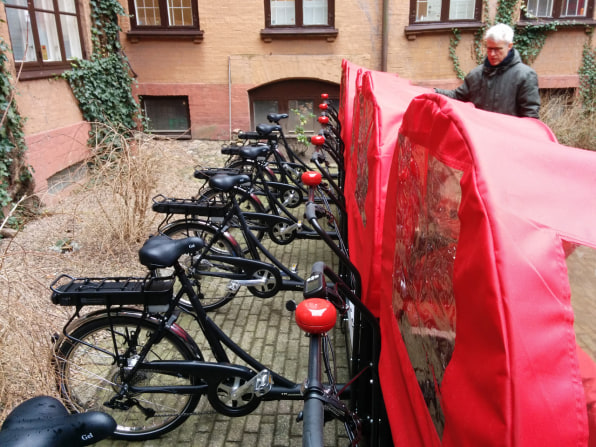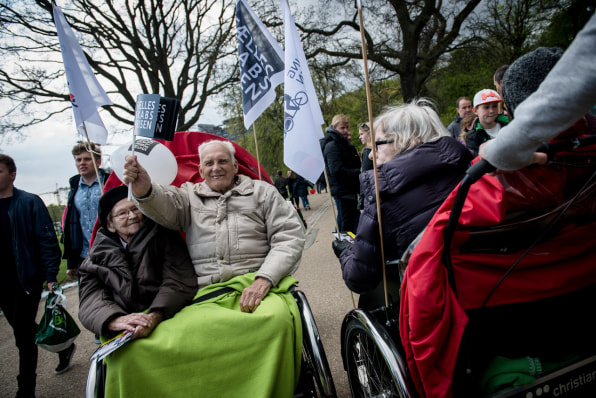Live Bike Game
Ole Kassow knows how to help the elderly feel a little less lonely: He gives them a ride in his rickshaw.
Two-and-a-half years ago, Kassow noticed a friendly-looking gentleman sitting on a bench near his home in Copenhagen. The two started greeting each other regularly, and it dawned on Kassow that the man might like a ride on his bike. After all, everyone in Copenhagen rides bikes; in fact, older people used to ride bikes even more than they do now.
Kassow visited the nursing home where the man, named Thorkild, lives and asked him out. The man, who's in his nineties, said yes and they started rambling all over the city, taking in the places Thorkild liked to visit in his younger days.

Then, not long after, the nursing home got in touch to say other residents also wanted to be taken in the two-seat passenger bike.
"They really enjoyed that and it really gave all of us mutual benefits," Kassow says. "They got to get out into the local community and see the things they remembered, and I got some really good stories and relationships."
Now, Kassow runs a burgeoning network of rickshaw "pilots" in 25 cities, including many outside Denmark. What started as a chance encounter and a simple gesture kindness has sprung into something larger. He calls it "Cycling Without Age."
"It's humbling and exciting to see how this is creating so much enthusiasm in places I would never have thought would be interested in something like this," he says.
Kassow is now on Indiegogo raising money for new bikes, training and outreach, so he can spread the idea to new places. People as far afield as Australia, New Zealand, the U.S., Singapore, Chile, and Argentina have said they want to set up their own chapters.

Kassow puts the success of the idea down to two things. First, the elderly are often cooped up inside for long periods and naturally want to get outside, where they can be part of the community again. "In Copenhagen, they're looked after really well, but they do tend to become lonely because the focus of the staff is very much on the basic care–getting them out of bed and giving them food and so on," he says.
But the volunteers also seem to get a lot out of it. "It's almost addictive for the volunteers. They keep coming back because once they've done it, they can see how they can, though a simple bike ride, put a smile on someone's face," he says.
Support the Cycling Without Age project here.
Source: https://www.fastcompany.com/3046265/make-the-lives-of-the-elderly-better-give-them-bike-rides
